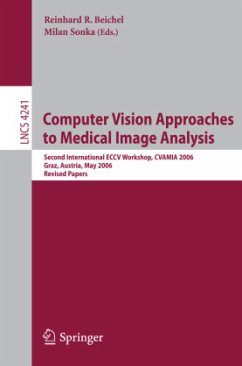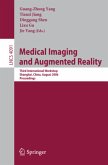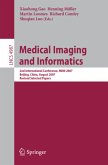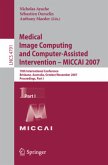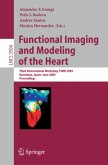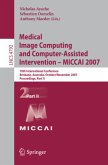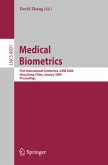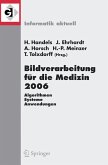Medical imaging and medical image analysis are developing rapidly. While m- ical imaging has already become a standard of modern medical care, medical image analysis is still mostly performed visually and qualitatively. The ev- increasing volume of acquired data makes it impossible to utilize them in full. Equally important, the visual approaches to medical image analysis are known to su?er from a lack of reproducibility. A signi?cant researche?ort is devoted to developing algorithms for processing the wealth of data available and extracting the relevant information in a computerized and quantitative fashion. Medical imaging and image analysis are interdisciplinary areas combining electrical, computer, and biomedical engineering; computer science; mathem- ics; physics; statistics; biology; medicine; and other ?elds. Medical imaging and computer vision, interestingly enough, have developed and continue developing somewhat independently. Nevertheless, bringing them together promises to b- e?t both of these ?elds. This was the second time that a satellite workshop,solely devoted to medical image analysis issues, was held in conjunction with the European Conference on Computer Vision (ECCV), and we are optimistic that this will become a tradition at ECCV. We received 38 full-length paper submissions to the second Computer Vision Approaches to Medical Image Analysis (CVAMIA) Workshop, out of which 10 were accepted for oral and 11 for poster presentation after a rigorous peer-review process. In addition, the workshop included three invited talks. The ?rst was given by Maryellen Giger from the University of Chicago, USA - titled "Multi-Modality Breast CADx".
Hinweis: Dieser Artikel kann nur an eine deutsche Lieferadresse ausgeliefert werden.
Hinweis: Dieser Artikel kann nur an eine deutsche Lieferadresse ausgeliefert werden.

